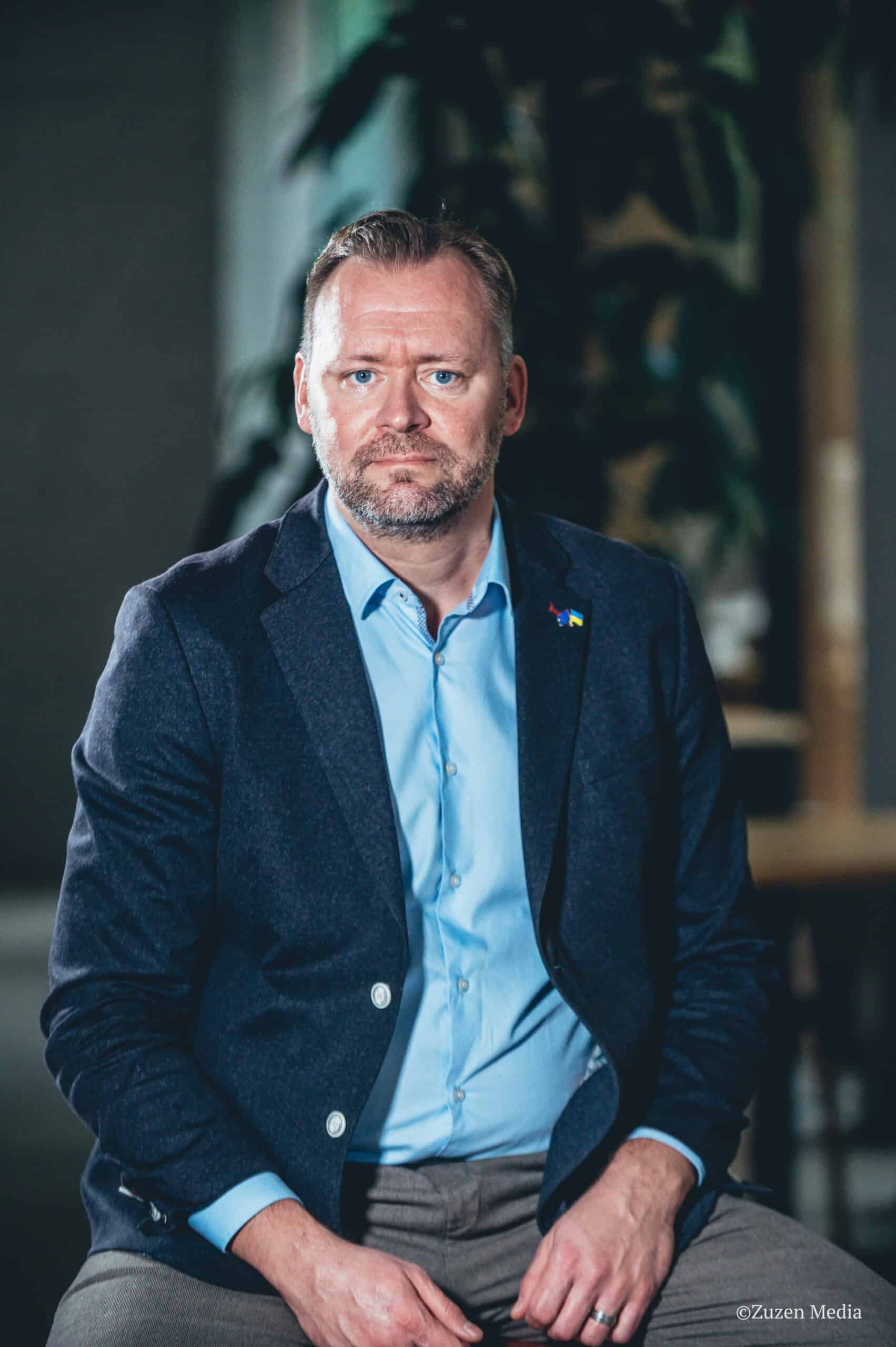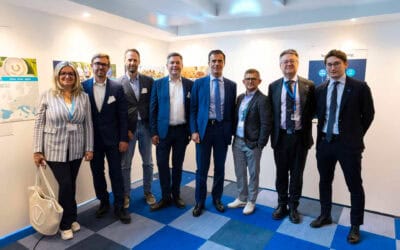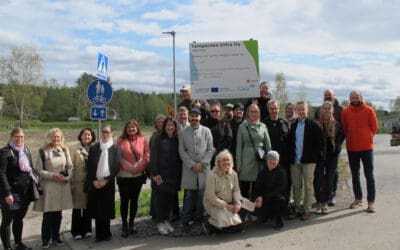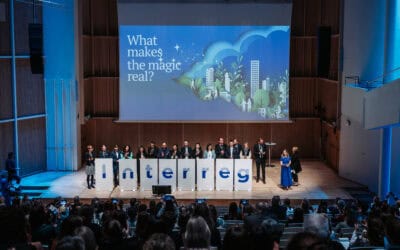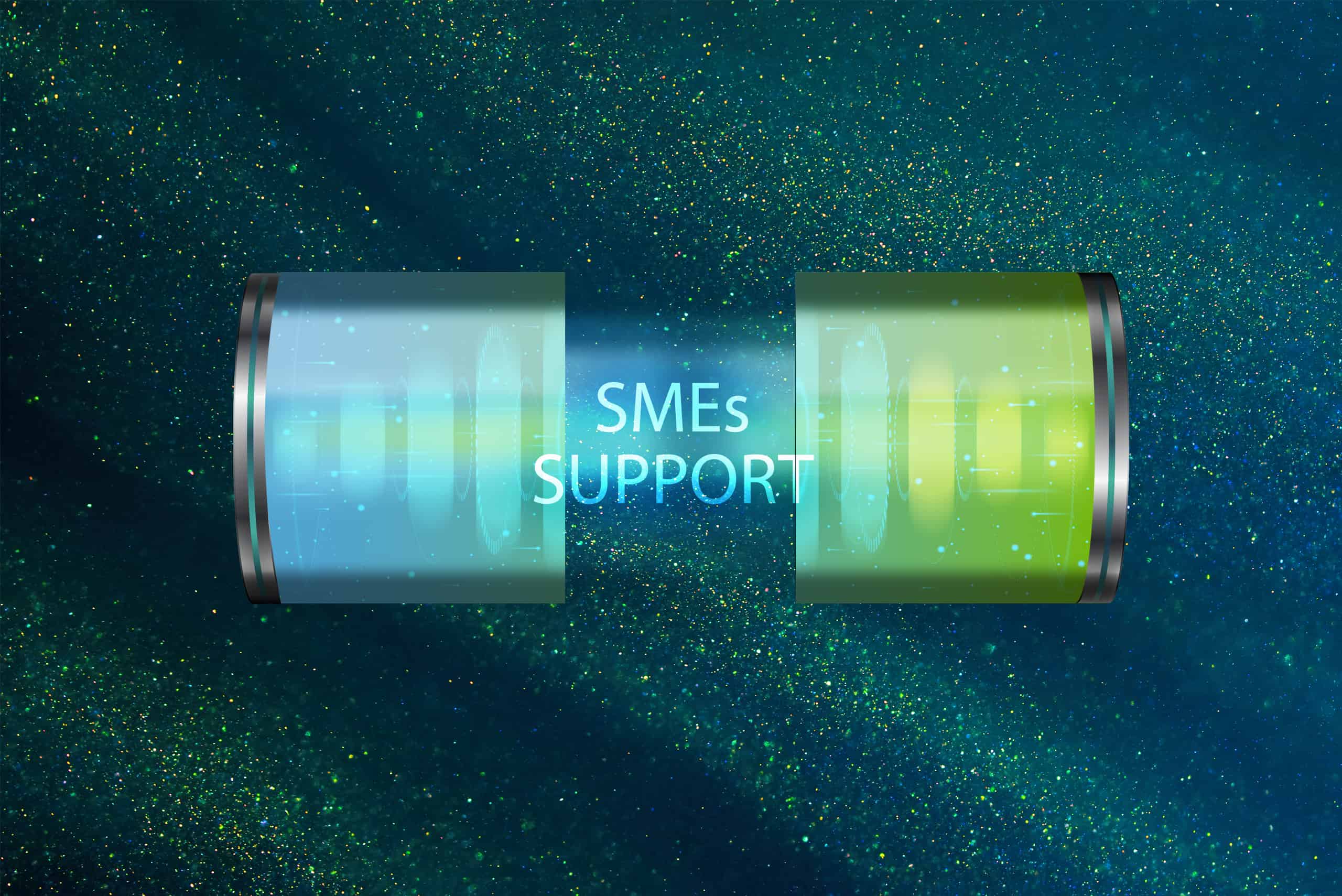
05 December 2023
How Interreg boosts SME growth
#25yearsIBSR
Written by Elena Kolosova
Thanks to transnational cooperation, small and medium enterprises in the Baltic Sea region have got first-hand expertise to develop their business, find new partners and enter new markets. Working beyond borders, they have become more competitive and found new ways of running a business. We take a look back at 25 years of Interreg Baltic Sea Region cooperation for support to SMEs.
SMEs driving the growth in the region
Small and medium enterprises (SMEs) are crucial to the Baltic Sea Region’s economy, driving growth, innovation, and job creation. Interreg projects have been instrumental in boosting the capacity, adaptability, and resilience of SMEs, and so promoting economic connectivity and cohesion in the region.
Esa Kokkonen, Director of the Baltic Institute of Finland and the coordinator of the policy area Innovation of the EU Strategy for the Baltic Sea Region
“The Programme is a very important instrument for local and regional actors in Tampere to connect with peers in neighbouring countries in topics like smart specialisation.We were able to coordinate and use the existing policies, policy instruments and innovation assets more effectively. The Programme helped us to be more effective with our innovation investments in the region.”
Enhancing capacity of SMEs
From 2004 to 2007, several projects supported SMEs in all Baltic Sea Region countries, facilitating over 1200 springboard events to help entrepreneurs develop business plans and attract venture capital. Regional development agencies and business support organisations improved their business training schemes and advice to SMEs.
Max Hogeforster, the Hanse Parliament, Germany
“We ended up with an application, and later on, an approved B-SME project, with as many as 39 partners from 10 countries! Although I wouldn’t do it again with that many project partners in one consortium, I must say that B-SME was a very successful project: the networks we created in the years 2004-2006 are still active today. It was the first EU project I managed and a very positive experience. I was very enthusiastic about the common willingness. Thanks to the Interreg projects, we brought tangible results for small and medium-sized enterprises (SMEs) in the Baltic Sea region for the past 20 years. Unlike universities, transnational cooperation is not very natural to small business support organisations or SMEs. It is difficult to mobilise SMEs to travel and connect with others. This is why our first projects revolved around matchmaking.”
Building support networks for SMEs
From 2009 to 2014, projects linked incubators, chambers of commerce, and clusters to create support networks for SMEs. These networks helped SMEs find partners in other countries and enter new markets. They facilitated access to innovation expertise and testing new products in world-leading research facilities located in different Baltic Sea Region countries.
Max Hogeforster, the Hanse Parliament:
“This would not have been possible without the Interreg support, as many chambers in the region are not that strong financially. We created many solutions for SMEs to help them run their businesses better.
We also created very strong structures that are still intact. For example, in 2009, we realised that SMEs are cut off from the academic world. So, we applied for a project called BSR QUICK and we managed to create the Baltic Sea Academy. The Academy brought universities and SMEs together. At that time, we started with seven universities in six countries in the region. Although this project ended in 2012, the Baltic Sea Academy is more active today than ever with 25 universities working together with SMEs on concrete Research & Development (R&D) tasks. This is something great to see – that a project works just as an incentive for something that grows after the project ends.”
Strengthening the competitiveness of SMEs
Between 2016 and 2021, projects boosted regional innovation ecosystems, networks of public authorities, innovation actors, universities, and companies. They discovered best practices to engage SMEs in innovation activities within regional smart specialisation strategies, a systematic process to make European regions globally more competitive through innovation. Projects also helped boost the competitiveness of SMEs in various sectors, like engineering, electronics, blue bioeconomy, IT, education, audio-visual and gaming, medical, clothing, and furniture.
Ilga Gruševa, the Monitoring Committee member from Latvia, the Ministry of Environmental Protection and Regional Development
“In the project Smart and Safe Workwear Clothing (SWW), the Riga Technical University facilitated the transfer of knowledge about intelligent solutions and integration of innovative IT technologies into clothing. New ideas were tested in production and in real working conditions, also by the national armed forces. As a result, the project increased the competitiveness of companies in Latvia and other countries in the region against cheap imports.”
Supporting SMEs in crisis situations
Projects also supported SMEs in crisis situations, providing advice from business consultants and mentors to avoid bankruptcy and job losses. Further, they helped SMEs transfer their businesses to successors as a change of ownership is a complex process.
Max Hogeforster, the Hanse Parliament
“I am also very happy about INBETS BSR which was about successors in companies. We worked on ways to motivate the young generations to consider taking over a running company instead of setting up a new one. And the topic we tackled is more relevant than before. I just read that the biggest threat for SMEs in Europe is the lack of successors. No wonder we still receive a lot of feedback from the project website and the tools; people keep downloading the guidelines and doing the assessments we created between 2017 and 2021.”
#25yearsIBSR
This year, our Interreg Baltic Sea Region Programme is celebrating its 25th anniversary. For more examples of #MadeWithIBSR project results and testimonials of great people who have helped shape the regions with us, visit our birthday celebrations page!
Want to know more about the projects that have been helping SMEs? Flip through the project examples below:
More recent news
How transnational cooperation is building Europe´s future with youth
Explore how transnational cooperation is transforming Europe, from addressing climate change to fostering local economic growth. This exhibition highlights the powerful impact of collaboration beyond borders in shaping a stronger, more united future.
Painting Baltic Sea region cities blue
There is nothing more exciting than seeing an Interreg project in action. On 22 May 2025, the project City Blues showcased how it is changing areas around the city of Tampere to prepare it for the consequences of climate change better.
Overcoming Borders Together – Interreg at the Fehmarnbelt Days 2025
Join us at the Fehmarnbelt Days 2025 on June 14-16, where Interreg Deutschland-Danmark, Interreg North Sea, and Interreg Baltic Sea will showcase the power of cross-border cooperation at our joint stand.
The magic of Interreg: this is how we do it transnationally!
Almost 300 guests, the charm of Finnish Tampere and a vibrant colour palette of transnational cooperation: the Interreg Baltic Sea Region Programme Conference held on 20-22 May 2025, brought to light the benefits of Interreg and the magic behind them.



